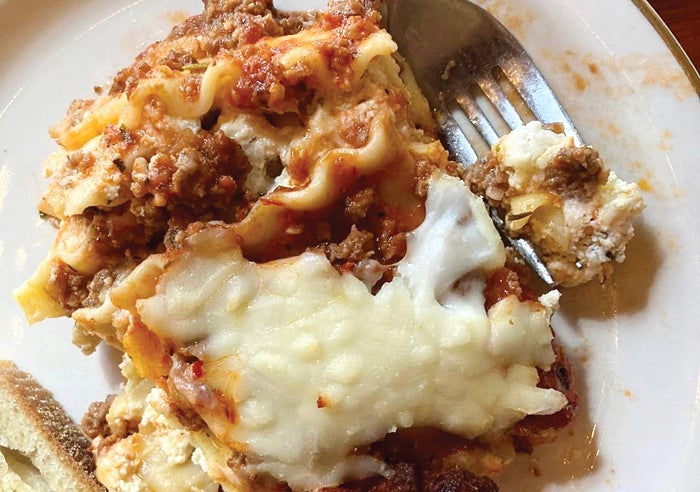Yes, breakfast is the most important meal
Published 12:00 am Wednesday, May 25, 2011
By Toi Degree
For the Salisbury Post
In this week’s column, I will provide you the answer to a question that may still puzzle many. Is breakfast the most important meal of the day? We have all heard that before, but it is really true?
The truth is that, yes, it is the most important meal of the day.
Breakfast gets you going for the day — at work, at school and at play.
People who eat breakfast feel better all day. They are more alert and creative and they perform better with a longer attention span and memory.
Eating breakfast helps us feel better and helps avoid headaches and stomachaches from hunger.
When you don’t eat breakfast, you don’t have the energy you need to start your day and by mid-morning you are exhausted or looking for any food you can find, often times leading you to make unhealthy choices.
So, if it is so important, what are some reasons that people skip breakfast?
• You don’t have time to make or eat breakfast.
• You don’t have breakfast foods in the house.
• You’re not hungry when you wake up.
• You don’t like breakfast foods.
• You think skipping breakfast helps you lose weight.
If your reason for skipping breakfast is to lose weight then you are heading down the wrong path. About 25 percent of Americans do not eat breakfast. Some people feel that if they skip breakfast, it will help them eat fewer calories.
It may sound like a good way to eat fewer calories. After all, eating one less meal has to help you eat fewer calories, right? Wrong. In fact, just the opposite is true. People who eat breakfast:
• Eat fewer total calories and less total fat.
• Are less likely to be overweight. Breakfast-eaters weigh, on average, less than those who skip breakfast.
• People who skip breakfast tend to eat more calorie-dense food later in the day, more than making up for the calories they would have consumed at breakfast.
So what is the one thing that many people who have lost weight and kept it off have in common? Simply eating breakfast!
Eating breakfast:
• Reduces hunger later in the day.
• Reduces the urge to consume more calorie-dense foods.
• Gives you energy to be more physically active.
Choose a breakfast cereal with:
• fewer than 200 calories per serving.
• fewer than 6 grams sugar per serving.
• at least 3 grams dietary fiber per serving.
Bars can be a good quick breakfast or snack. They are also good to keep in your desk drawer as an emergency meal. If you choose a breakfast bar, choose one with:
• Fewer than 200 calories per bar.
• Fewer than 6 grams sugar per 100 calories.
• At least 3 grams dietary fiber per bar.
Breakfast tips
• Prepare the night before. Set the table with bowls and spoons for cereal. Put ingredients for smoothies in the blender jar and refrigerate. Slice up some fruit and low-fat cheese.
• Keep it simple. On busy days, a sandwich or yogurt with fruit work just fine.
• Pack it to go. If there’s no time to eat at home, pack it to go. Save time by packing both a brown-bag breakfast and lunch the night before, and keep it in the refrigerator until you are ready to leave.
• Breakfast doesn’t have to be breakfast food. Use leftovers for breakfast. This helps save money and keeps from wasting food.
• Plan and shop. Keep sliced fruit or hard-cooked eggs in the refrigerator.
A smart breakfast includes one item from each of these three groups:
Grain. A grain gets your body and brain going for a busy day. Try hot or cold whole-grain cereal or whole-grain bread.
Protein. Protein is often missing from breakfast. Protein is what you need to keep you going until lunch. Many foods have protein, not just those from the meat group. Try lean options like eggs, lean deli-meat, fat-free yogurt or cottage cheese.
Fruit. Breakfast is a great way to get started on the two cups of fruit you need each day. Whole fruit is a better option than juice because you get the added benefit of dietary fiber that helps you feel fuller longer. Any fresh, frozen or canned fruit is fine. Make sure canned and frozen do not have added sugar.
Quick breakfast ideas:
• Rice pudding — mix leftover rice, low-fat or fat-free vanilla yogurt, raisins, almonds and cinnamon.
• Pita sandwich — fill pita bread with 1 ounce low-fat cheese, 1 or 2 ounces low-fat ham or turkey, and vegetables. Heat in the microwave or serve cold.
• Hot cereal — make quick cooking oats, add fruit, and enjoy with a glass of fat-free milk.
• Breakfast burrito — fill a whole-wheat tortilla with one scrambled egg, egg substitute or 1/2 cup black beans. Add 1-ounce low-fat cheese and salsa.
• Fruit smoothie — 1/2 cup of fruit — banana, strawberries, peaches, blueberries; 1 cup of base — low-fat plain or vanilla yogurt, frozen fruit or ice cubes; and 1/2 cup liquid fat- free or soy milk or juice blend until smooth and enjoy.
Skip the fast food breakfast. There are virtually no healthy options on the breakfast menu. Keep healthy foods on hand and make breakfast at home.
Have a good week and start enjoying breakfast again.
Email Toi N. Degree at toi-degree@ncsu.edu.





